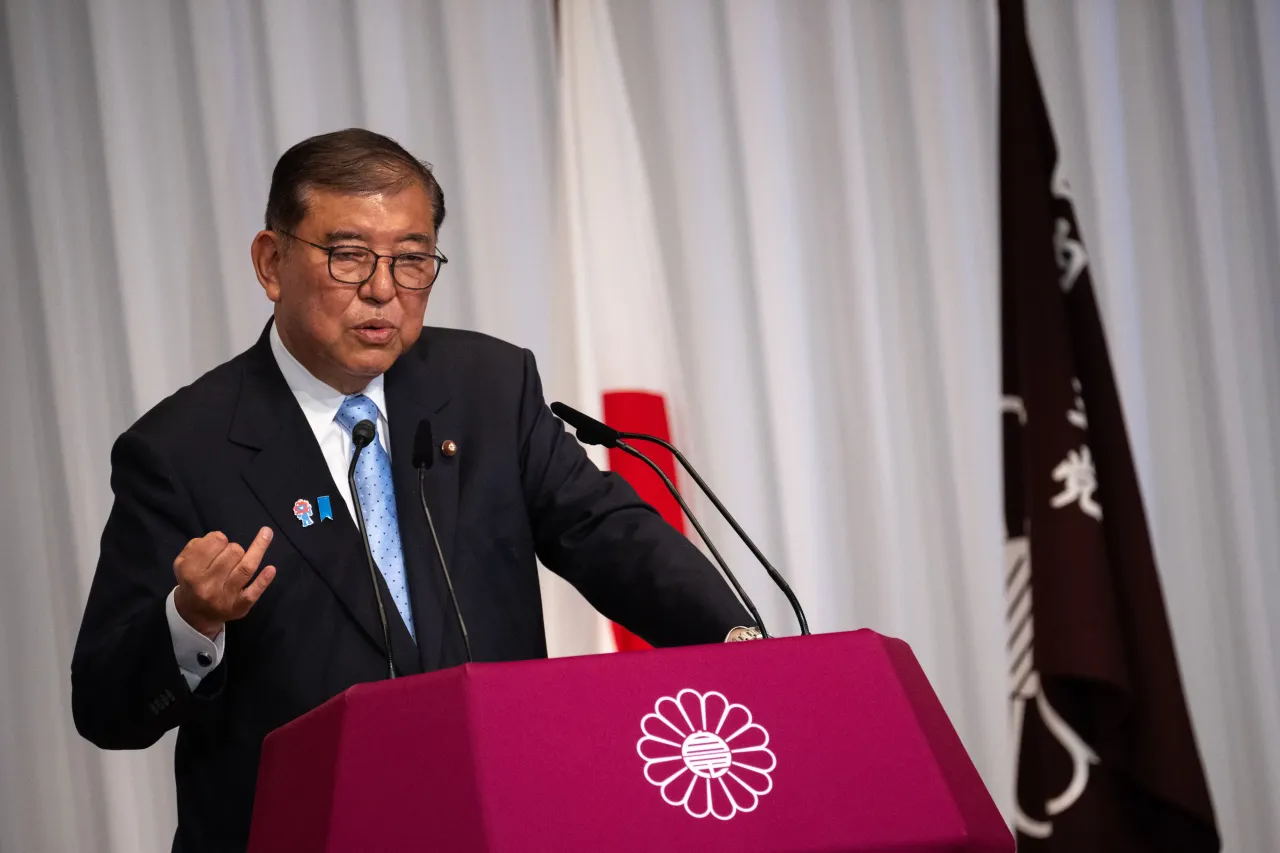Advertisement|Remove ads.
Japan PM Shigeru Ishiba Reportedly Mulls Stepping Down This Month After Striking US Trade Deal

With the trade deal with the U.S. now done, Japanese Prime Minister Shigeru Ishiba is reportedly planning to step down.
A Bloomberg report, citing the Yomiuri newspaper, stated that Ishiba is set to announce his resignation this month. The rumored move followed the ruling Liberal Democratic Party (LDP) losing its majority in the upper house.
Other local media outlets have also reported the proposed resignation, although some have stated that the move could occur as early as next month.
Ishiba had already communicated his intention to quit to those close to him, as he is relieved over the resolution of the uncertainty surrounding the U.S. tariffs.
U.S. President Donald Trump touted a “massive deal” with Japan late Tuesday, which involves a reciprocal tariff of 15% on imports from Japan and a $550 billion investment by the Asian nation in the U.S.
The Nikkei 225 average climbed to its highest level in a year following the deal, with auto stocks leading the way higher.
The SPDR S&P 500 ETF (SPY), an exchange-traded fund that tracks the S&P 500 — a measure of broader U.S. market performance — has gained nearly 8% this year. The iShares MSCI Japan ETF (EWJ) is up over 9.5%.
At last check, the yen was down 0.35% against the U.S. dollar, at 147.14.
Yomiuri also reported that Ishiba would meet with three former prime ministers on Wednesday to discuss his intended resignation.
A separate report by Sankei stated that the prime minister will resign only in late August, due to key commitments that require his attention earlier that month.
A new leader for the LDF would be elected by September, and if they were to be designated as the prime minister, the ruling party would need some level of support from the opposition parties.
William Chou, Deputy Director, Japan Chair at Hudson Institute, said, “What this means is that we’re sort of entering a period of speculation as to who’s going to be the next leader,” according to Bloomberg.
The report also stated that a poll found a significant dip in Ishiba's approval rating following his electoral loss. The approval rating held slightly above 20%, a level often considered dangerously low for an administration to continue.
For updates and corrections, email newsroom[at]stocktwits[dot]com.











/filters:format(webp)https://news.stocktwits-cdn.com/large_Solana_722b6a3879.webp)
/filters:format(webp)https://news.stocktwits-cdn.com/Anushka_Basu_make_me_smile_in_the_picture_b92832aa_af59_4141_aacc_4180d2241ba8_1_2_png_1086e0ed8c.webp)
/filters:format(webp)https://news.stocktwits-cdn.com/large_X_Elon_Musk_274c6a8683.webp)
/filters:format(webp)https://news.stocktwits-cdn.com/large_kevin_o_leary_OG_jpg_2789641a97.webp)
/filters:format(webp)https://news.stocktwits-cdn.com/large_Getty_Images_2200882557_jpg_53f3e467bc.webp)
/filters:format(webp)https://news.stocktwits-cdn.com/large_Getty_Images_2260269284_jpg_cf42b9b8c3.webp)
/filters:format(webp)https://news.stocktwits-cdn.com/large_Patrick_Witt_d5f3eaa4da.webp)